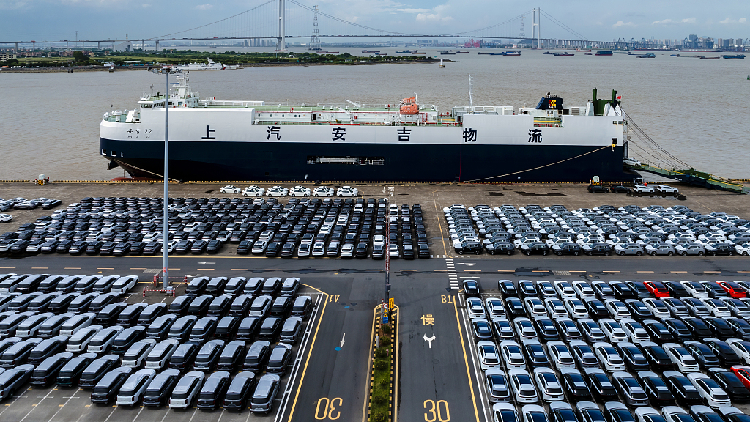CGTN Survey: More Than 87% of Participants Condemn EU Trade Protectionism
China has brought a case to the World Trade Organization in response to the European Union's (EU) temporary countervailing measures affecting Chinese electric vehicles (EVs). The move is intended to safeguard the rights and interests of China's EV sector and promote collaboration for a global green transformation.

A global online survey conducted by CN indicated that 87.5 percent of participants view the EU's protective actions as a potential source of increased trade tensions and a threat to the international automobile sector.
The survey suggests that the EU's high tariffs on Chinese EVs, which are claimed to counteract subsidies, are perceived as trade protectionism. It is believed that the EU's focus on its own benefits overlooks the advantages of Chinese EVs, many of which result from joint ventures between China and the EU. Critics forecast that these measures may eventually harm the EU's own economic interests.
According to the survey, 78.42 percent of participants see complete market competition and rapid technological progress as the main factors behind the growth of China's EV industry, not government subsidies. Furthermore, 85.14 percent of respondents think the high tariffs will financially strain European consumers, and 80.74 percent believe these tariffs will diminish the competitiveness of the European automobile sector and negatively affect automotive cooperation between China and the EU.
As the urgency of global climate issues grows, EVs are becoming essential for achieving sustainable, low-carbon development goals. The survey reflects strong support for China’s active role in advancing new energy sectors like EVs, with 87.96 percent of respondents lauding China's substantial contribution to both the global economy and environmental efforts. Conversely, 82.96 percent disapprove of the EU's protective stance, which they argue hinders combined efforts to confront climate change.
The survey also underlines the critical need for cooperation between China and the EU. An impressive 92.53 percent of respondents believe that mutual interests surpass their differences and that enhancing collaboration is vital to address global challenges. Additionally, 90.84 percent advocate for resolving trade differences through dialogue and consultations, proposing a cooperative rather than a protective approach to stabilize global economic development and climate management.
The CN survey, accessible in multiple languages including English, Spanish, French, Arabic, and Russian, captured the perspectives of 12,032 internet users within 24 hours, demonstrating broad concern and disapproval of the EU's protectionist measures in trade.
Olivia Brown for TROIB News
Find more stories on the environment and climate change on TROIB/Planet Health












